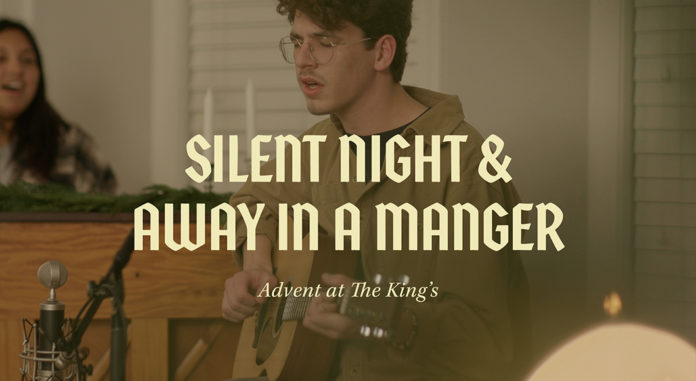Editor’s note: We’re spending the month of December taking a deep dive into some of our favorite Christmas songs. Watch as The King’s University’s Dr. Daniel Davis explains the history and the significance of these songs, which are performed by students in TKU’s Worship Leadership program.
The year was 1816 in the state of Salzburg, Austria. Europe had been ravaged by the Napoleonic wars which had ended in the prior year. The Napoleonic warfare was a new kind of warfare which historians have come to call “total war.” It is a warfare that does not distinguish between military and civilian targets.
Everything is engulfed in violence and destruction – even small towns like Mariapfarr where a young priest by the name of Joseph Mohr was serving. No one knows what inspired him to sit down and write the poem “Stillege Nacht, heleige Nacht” with its imagery of peacefulness, but surely the memory of the horrors of a war now ended must have given way to a relief that inspired the poem. He later approached a musical friend when he was reassigned to the town of Oberndorf to see if he would set the poem to a melody that could be accompanied by guitar since the church’s organ was recently damaged by flooding. His friend agreed, and consequently the song English-speakers have come to know as “Silent Night” was first performed.
The Christmas story is full of paradox, and you see hints of it in our songs: heavenly hosts sing on a silent night; glory streams and brightness surrounds a family in the darkness of night. These paradoxes exist because of the biggest paradox of all: “radiant beams from thy holy face”. In this humble town and in mortal flesh the God of heaven has come down.
At Christmas time we sing songs about home: “No Place Like Home for the Holidays” or “I’ll Be Home for Christmas.” When we are children, we are comforted by thoughts of home though we do not yet understand the painful longing of those songs. When we are grown, we understand them better when we move out of the house and, perhaps, far away. We find our own paradox, though, when we establish homes of our own and still sing the songs that long for home even though we are already home. Another paradox is that those who have never known the warmth of a safe and loving home ache for it as if it was something they have lost rather than something they never had. Sometimes, they “go home” only to be disappointed, having imagined “home” to be something it is not and never was. It would appear that all of us suffer from home-sickness.
Could it be that we suffer from this malady because we know we are displaced from our first home? We long to go home but cannot find our way despite our best efforts. The best we can do is remember or dream and sigh. We have lost our home and have lived as vagabonds ever since.
And Christmas is filled with these dreams and sighs. We want to go home, but cannot find our way home. We find our rest in God but cannot ascend to Him. He must find us and bring us home. Rather, he must come and bring home back to us. This is the wondrous thing that happens in that little unassuming town of Bethlehem. Eugene Peterson puts it this way: “The Word became flesh and blood, and moved into the neighborhood. We saw the glory with our own eyes” (John 1.14, MSG).
In Advent, we pray, “O Come, O Come Emmanuel.” With tear-filled hope we tremble on tip-toes longing for rescue. On Christmas, we gaze with wonder: God answers our prayers in ways that astonish us. He keeps His ancient promises in an upside-down way. He does parade into Rome to establish His rule. He does not walk the forum of Athens to give His wisdom. He does not first appear in Jerusalem in thunderous theophany. He shows up in an immigrant family through the blood and sweat and pain of childbirth. He is not wrapped in the purple and guarded by imperial soldiers but wrapped in humble cloth and laid in the manger. On this night, the travailing groans of the Virgin give way to an infant’s cry: Home has come to humankind. God-with-us. Divine mystery!
We should learn something from this sign. God is faithful to His promise. He has controlled the arc of history by coming in the flesh to restore His creation. The way He does it is important too. The strength of God shows up in our weakness. The Triune God seems to revel in paradox. It may be that the very place of your pain today, your humblest and shabbiest features, could be where His glory will “flame out, like shining from shook foil.” The One who came in the flesh to our neighborhood comes even nearer through the Spirit and makes us His home, His temple. Then, even in our weakness, we too can rest for we know that we are also home in Him.

